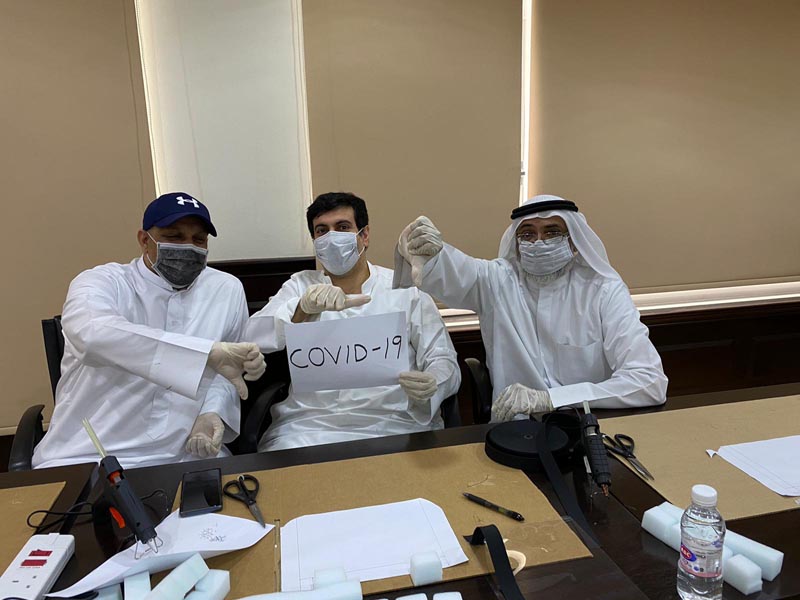

By Nawara Fattahova
KUWAIT: Due to the coronavirus pandemic, the Kuwait Society of Engineers (KSE) has set an emergency crisis management plan to support the government with any possible efforts. KSE has gathered volunteer engineers in five groups from different engineering fields to provide technical support to public and private institutions, in addition to individuals.
KSE is providing many activities, the most important of which is establishing a temporary factory to produce face shields and other medical equipment for those working on the frontlines, including doctors, police forces, soldiers, volunteers and others. Around 200 engineer volunteers are working in shifts on this project for almost a month.
"At KSE we have three types of face shields - 3D-printed, laser-cut and handmade (one-time use) shields. The 3D and the laser-cut shields are reusable and durable, which saves the environment with less waste and reduces the need for more production. The single-use shields were only given to the ministry of health. KSE has produced over 13,000 masks till today," Chairman of KSE Faisal Deweh Al-Atel told Kuwait Times yesterday.
They started with producing 400 shields daily. "Before the holy month of Ramadan, our team was working seven hours a day, while now they only work three hours, so production has dropped to half. We asked the ministry of interior for permission to work during the curfew and we are still waiting for it," Atel said.
"We were informed that our shields don't reach all doctors, especially those in certain locations, so we decided to distribute the shields personally to them. Our volunteers distribute them to doctors in Farwaniya, Jaber, Amiri, Mubarak, KOC and Adan hospitals. We also distribute them to doctors and other professionals working at the airport and at quarantine sites including firefighting forces, National Guard, police and special forces, Red Crescent, Public Authority for Food and Nutrition, Municipality, medical associations, and co-ops," stressed Atel.
KSE is producing more medical equipment according to the needs of medical staff. "We produced the 'ear guard', which is a plastic piece that relives pressure on ears and nose while providing more protection. We also produced 10 cubicles that provide complete isolation for doctors from patients. But this is only used by a few doctors. Now there is a shortage of gowns in Kuwait, so we will start producing them after receiving the machine from abroad," he pointed out.
KSE has 12 locations for production in cooperation with some institutions. "All the materials are provided by KSE, but we cooperate with the Kuwait Institution for Scientific Research, Gulf Consultant and others by using their equipment. Hopefully soon, we will also cooperate with the Public Authority for Applied Education and Training," concluded Atel.



